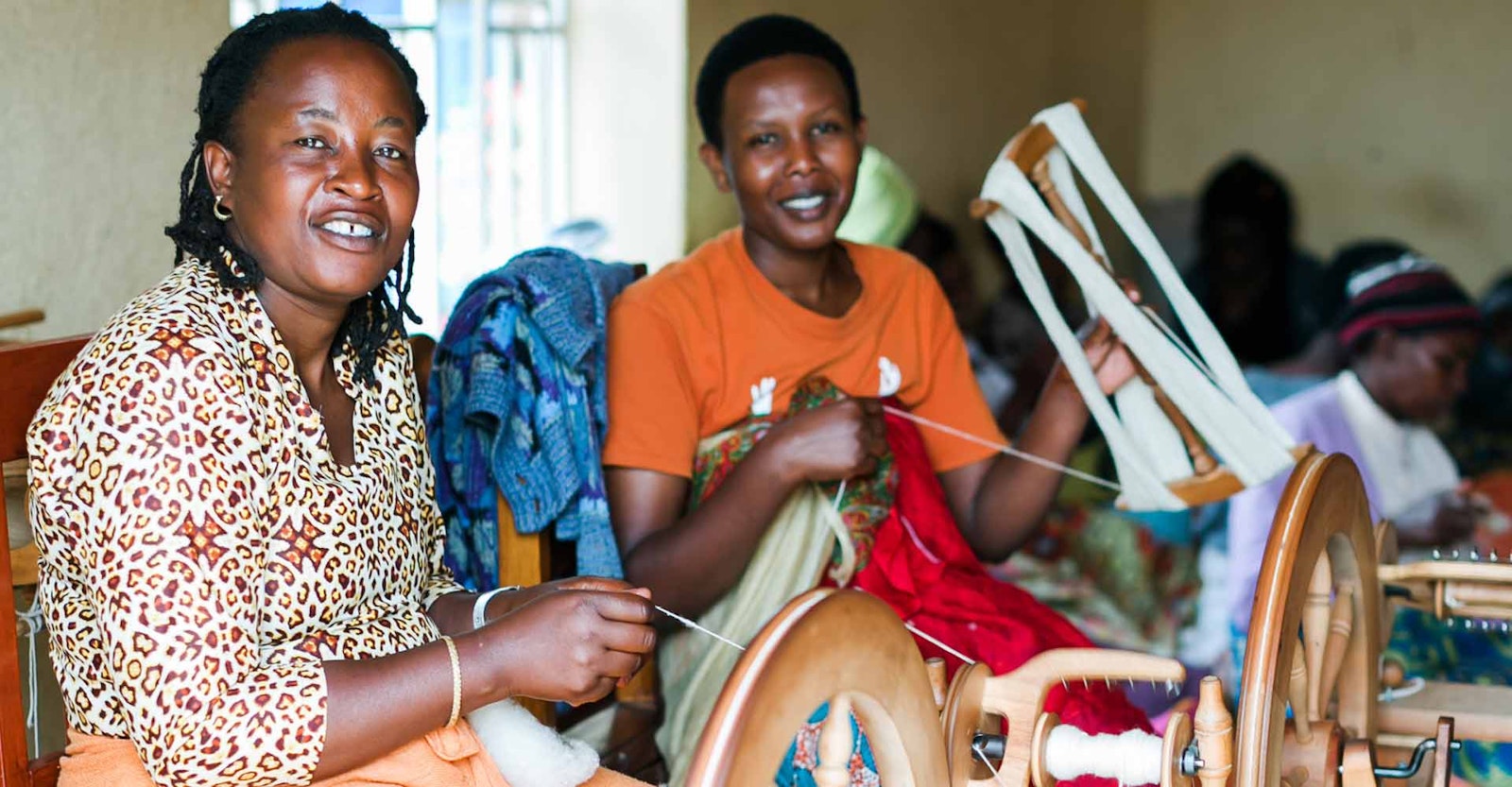“Yarn from Rwanda? I’ve never heard of that!” I exclaimed several years ago when I discovered some beautiful organic, naturally dyed merino at a local yarn store. Until that visit, my knowledge of Rwanda wasn’t great. I knew it was in Central Africa, it was home to various endangered animals, and, of course, I knew about the terrible genocide in the 1990s.
The store owner quickly fixed that knowledge deficit and introduced me to Handspun Hope, an amazing organization launched and orchestrated by a person who lives in my hometown.
Handspun Hope founder Diana Wiley has been involved in international charitable efforts for decades through her church. About 20 years ago, Diana’s path led her to Rwanda, where social rules make it very difficult for widows and orphans to provide for themselves. Diana’s desire was to not just “give and leave” but to help women establish a sustainable lifestyle.
She knew a critical component for success in this kind of project is to work with locally available resources. During her first visit, Diana shared a short video with her family and friends in which she stood in the middle of some lush vegetation and a bunch of farm animals in Musanze, Rwanda, saying, “Okay, people, tell me what we can do with all of this!” The answer, of course, was sheep.
It took over 10 years to get from the idea of doing something with the local sheep to a finished merino wool yarn that received a thumbs-up from United States fiber experts. Those efforts were rewarded when the yarn became the first yarn certified by the Fair Trade Federation.
Handspun Hope grew from supporting about 10 women at its start to over 130 currently. These women are strong and determined and won’t give up working for a better life for themselves, their families, and their community. Handspun Hope provides a safe place for the women to live and work. It gives them hope and the ability to live in peace, with enough food, a home to call their own, and education for their children.
Handspun Hope currently offers three yarn lines. The first is Organic Merino Wool Yarn that is offered in four weights. The second is Ethiopian Handspun Cotton Yarn. This yarn is spun on handspindles by women in Ethiopia, then imported to Rwanda, where it is dyed and plied by the women of Handspun Hope. Recently, Handspun Hope added a new venture — breeding Angora rabbits — and its third yarn line. The beautiful sportweight Organic Angora and Merino Blend is stunning in its softness and sheen.
Handspun Hope very fittingly tags its yarns “Perfectly Imperfect.” The handmade character means the yarns and colors are only available in limited amounts, and slight variations are the norm. I find all of the yarns enjoyable to work with and have made projects on my rigid-heddle loom and several small looms.
When I work with the yarn, I take extra time for sampling. This lets me explore its best use, but it also lets me experience the origins of the yarn like no other yarn does. I think of the sheep and rabbits in Rwanda, the women who card and spin the fibers, harvest the dyes, and dye the yarn. Connecting with the yarn means connecting with the women.
Recently, I asked Diana where she would like Handspun Hope to go from here. With passionate determination in her voice, she explained that she wants Handspun Hope to be self-sustaining before she retires. What a great mindset to weave into our projects!
Although by buying the yarn you will be supporting Handspun Hope, you can take an additional step and build a personal relationship by directly sponsoring one of the women. Find more information about Handspun Hope, its yarns, and its mission at handspunhope.org.

